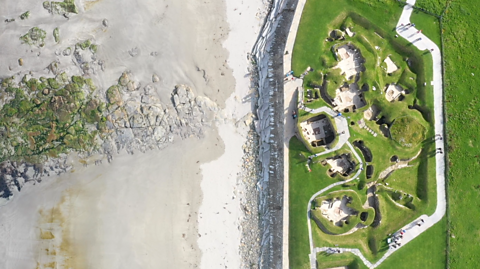How did Iron Age people live?
Around 800 BC people in Britain learned how to use iron. This discovery had a dramatic impact on everyday life. Iron tools made farming much easier than before and settlements grew in size.
People in Iron Age Britain lived in clans that belonged to tribes led by warrior kings. Rival tribes fought with deadly iron weapons. Many people lived in hill forts to keep safe from attacks.
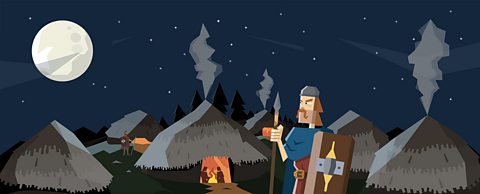
During the Iron Age, the Celtic people spread out across Europe and many settled in Britain. The ancient Britons followed a Celtic way of life. They enjoyed feasting, music and poetry.
They produced fine metalwork which they traded with people in mainland Europe.
Watch: What was an Iron Age hill fort?
Raksha Dave visits Maiden Castle in Dorset to find out about Iron Age tribes.
By the end of the Iron Age many people lived in hill forts. The forts were surrounded by walls and ditches and warriors defended their people from enemy attacks. Men and boys trained as warriors. They had to be prepared to fight at any time.
91Čȱ¬s
Inside the hill forts, families lived in round houses.
These were simple one-roomed homes with a pointed thatched roof and walls made from wattle and daub (a mixture of mud and twigs).
In the centre of a round house was a fire where meals were cooked in a cauldron.
Around the walls were jars for storing food and beds made from straw covered with animal skins.
Farming
- Iron Age farmers grew crops and vegetables.
- They kept geese, goats and pigs and had large herds of cows and flocks of sheep.
Jobs
- Some people worked as potters, carpenters and metalworkers.
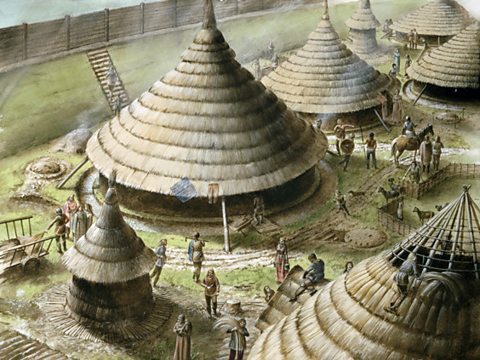
Iron Age tools
Iron Age people developed some very useful tools to help them in their daily work. Click on these pictures to find out more.
What did Iron Age people believe?
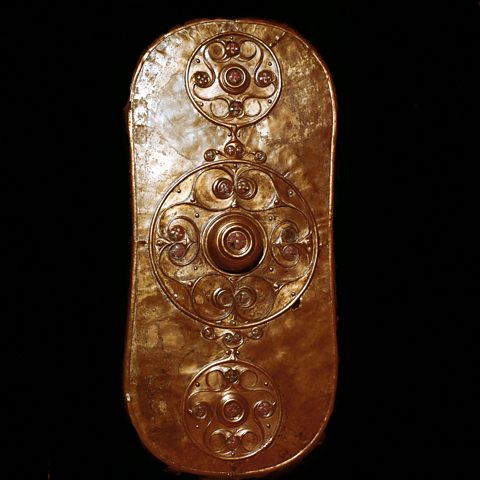
People in Iron Age Britain believed in powerful spirits. They met to worship the spirits in sacred places, like the shores of a lake or a clearing in a wood.
Priests known as druids led religious ceremonies. They sacrificed animals and sometimes humans too! The druids gave precious offerings, such as swords and cups, to the spirits. They buried the offerings in the ground or threw them into rivers, lakes and bogs.
When the Romans first arrived in Britain they wrote about the religion of the ancient Britons. They described four of their main festivals:
- Imbolc was held in February to welcome the birth of the first lambs.
- Beltane was celebrated in May, when the cattle were moved to their summer fields.
- Lughnasadh was held in August to celebrate the ripening of the crops.
- Samhain took place in November and marked the end of the year.

Activities
Activity 1: Iron Age quiz
Activity 2: Compare and contrast
Watch this video about life in the Iron Age from 91Čȱ¬ Teach.
- Can you write down three of the biggest changes from the Bronze and Stone Ages.
- Write down three things that have changed the least.
Life in Iron Age Britain shown through the eyes of a typical family as they deal with a raid by another tribe. The impact of the discovery of iron is explored.
Bitesize Primary games. gameBitesize Primary games
Play fun and educational primary games in science, maths, English, history, geography, art, computing and modern languages.

More on Prehistoric
Find out more by working through a topic
- count8 of 21
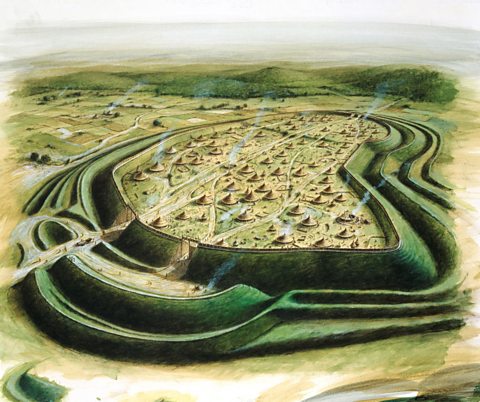
- count9 of 21
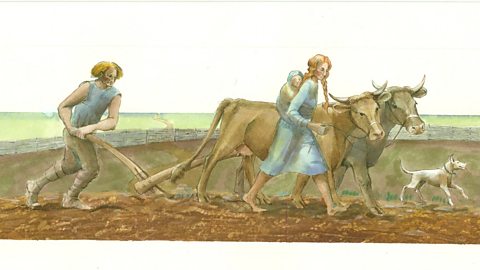
- count10 of 21
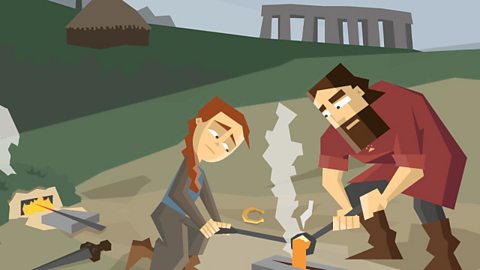
- count11 of 21
